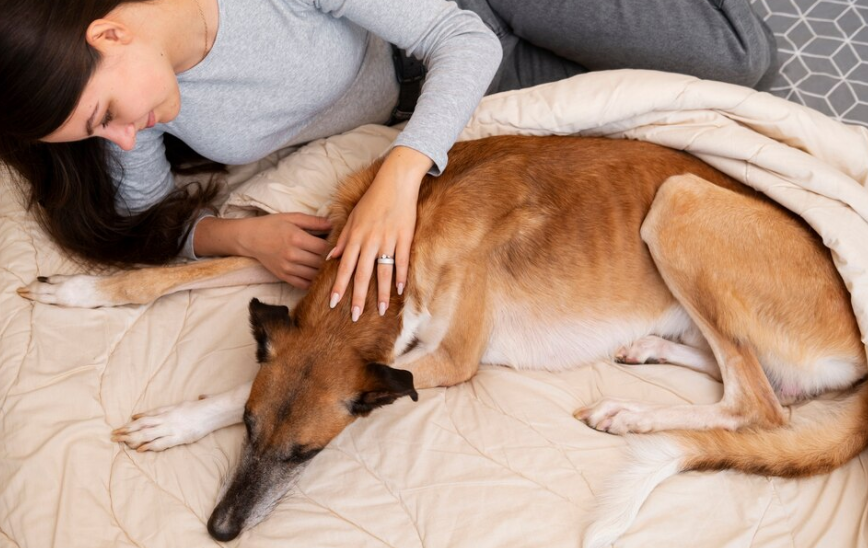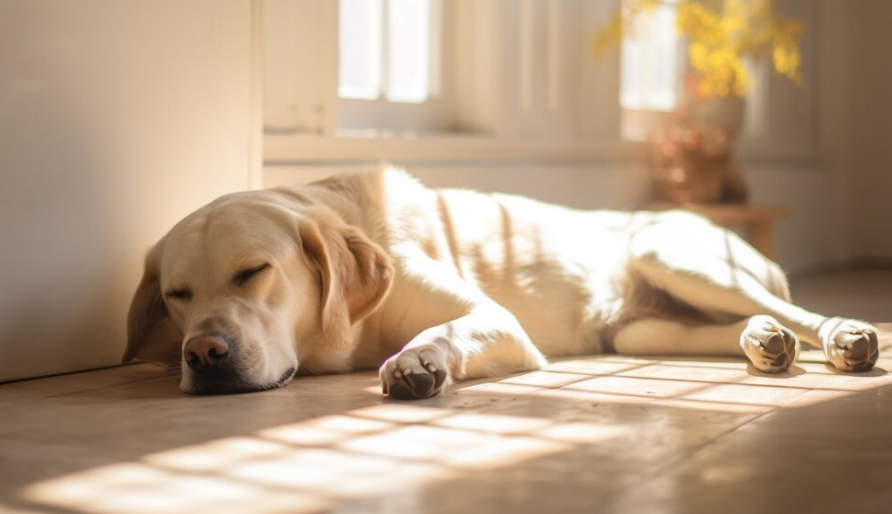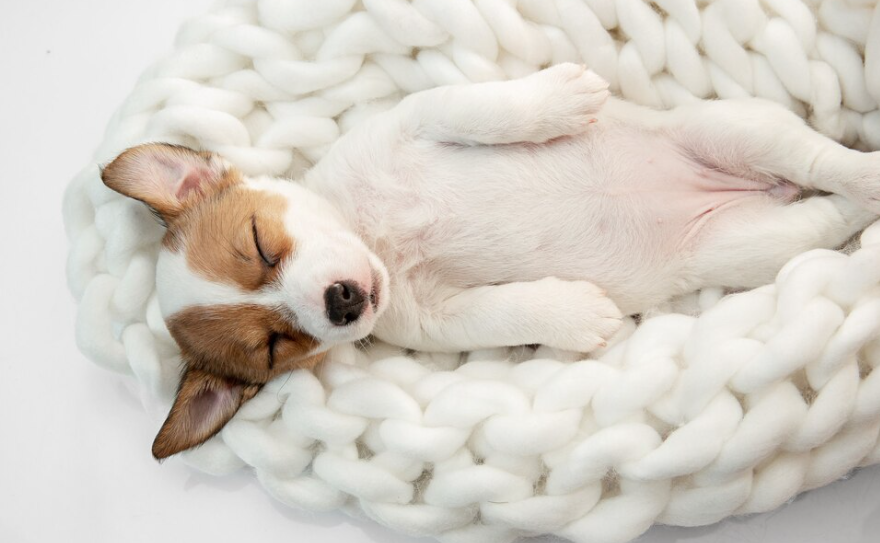Ruff Night? How Stress Affects Your Dog’s Sleep

©️ Freepik
Ever lie awake replaying every embarrassing moment from the day? Turns out, it’s not just a human experience. Stress affects even our dog’s sleep leaving them with restless nights.
A new study sheds light on the connection between stress and sleep quality in dogs, highlighting the importance of creating a calm and supportive environment for our furry friends.

The Experiment: Positive vs. Negative Experiences
Researchers in Hungary set out to explore the impact of emotions on canine sleep patterns. They included a variety of breeds in their study – Golden Retrievers, Labradors, Sheepdogs, and Jack Russells. Before each dog’s nap time, they were given either a positive or negative experience.
Positive experiences were all about bonding and fun. Owners played tug-of-war or fetch with their dogs, showering them with affection and praise. On the other hand, negative experiences were designed to induce stress. Dogs were left alone on a leash, ignored by their owners, and then approached by a researcher in a way perceived as threatening.

Sleep Patterns Tell the Story
The results were clear: a stressful experience impacted sleep quality. While both groups got a similar total amount of sleep, the stressed dogs spent significantly less time in deep, non-REM sleep. This is the crucial sleep stage where memory consolidation and emotional processing occur.
Consequences of Stress in Our Dog’s Sleep
A single bad night’s sleep might not cause long-term problems. However, chronic stress and sleep deprivation can have a significant impact on your dog’s health and behavior. Just like humans, dogs who don’t get enough quality sleep can become more irritable, and aggressive, and have trouble learning new commands. Additionally, poor sleep can weaken a dog’s immune system, making them more susceptible to illness.

What Can We Do So Stress Doesn’t Affect Our Dog’s Sleep
Knowing the connection between stress and sleep, what can we do to help our the stress so it doesn’t affect how our dogs sleep and get the rest they need? Here are some tips:
- Identify and Address Stressors: Understanding the root cause of stress allows you to take proactive steps to minimize it.
- Establish a Calming Bedtime Routine: Create a consistent routine that signals to your dog it’s time to wind down. This could include a gentle walk, some quiet playtime, or a soothing brush session.
- Create a Safe and Comfortable Sleep Space: Your dog’s bed should be comfortable and situated in a quiet, dark place away from foot traffic. Consider using a crate to provide a sense of security.
- Positive Reinforcement: Reward calm behavior, especially during stressful situations. This reinforces a positive association with staying calm and can translate to a better night’s sleep.
- Provide Plenty of Exercises: Regular exercise helps your dog burn off energy and promotes restful sleep. Aim for daily walks or playtime sessions to ensure your pup gets the physical activity they need.
- Consult Your Vet: If your dog’s sleep problems persist despite your best efforts, consult your veterinarian. They can rule out any underlying medical conditions that might be impacting their sleep.

By understanding the connection between stress affects how dogs sleep, and by implementing these strategies, you can help your furry friend unwind and achieve the restful sleep they deserve.
You might also like to read: Do Dogs Love You More Than Cats? Study Finds Out!


